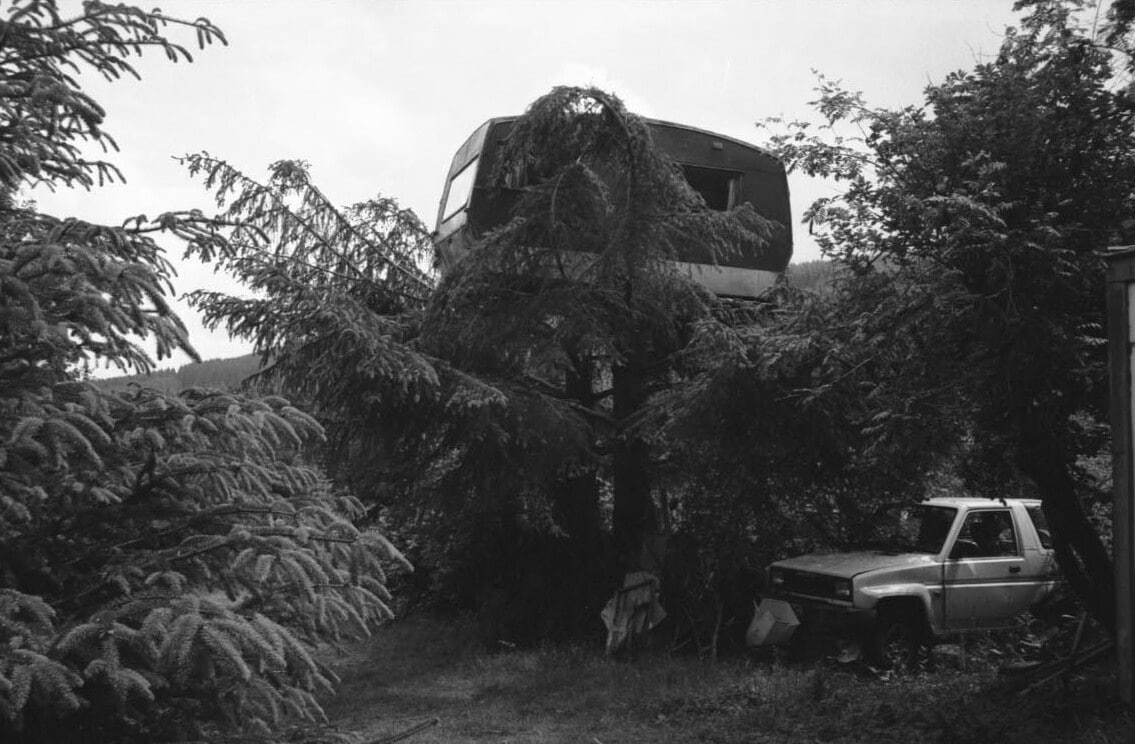




Dir: Ben Rivers | Uk Doc
Enigmatic award-winning cinematic maverick Ben Rivers, who crossed between the chasm that separates cinema and video art, returns with another look at Jake Williams; who he has featured in his early shorts and the feature film Two Years At Sea. The film will premiere as part of the International Competition at this year’s Locarno film festival.
Made over a period of around a year, Rivers went up to Scotland five times during that period, staying for 10 days on each visit, and as usual he shot on his own old Bolex and a super 16mm Aaton. Like the previous film this gives the film an unworldly look akin to the silent cinema of both Dreyer and Murnau.
The subject of Bogancloch is Jake Williams, a spiritual cousin to the American transcendentalists. A modern day frontiersman who lives in the highlands of Scotland. His life is very much a physical one. He’s a musician and he also used to work as a supply science teacher at a local school. One sequence shows him in the classroom with a group of kids who listen in rapt attention as he explains the inner workings of the sun. This is very much a different way of living, one even that can be envied.
There is a sense of stillness, always it seems in the work of Rivers, alongside sound and found musical experiences, which feature among others: everything from jazz to campfire singalongs to Persian and Indian music and even a bit of the poetry of Seamus Heaney.
There is no explanation or simplistic contextualisation, there just is. There are colourful inserts of degrading photographs the younger Jake had taken on his travels as a merchant seaman mainly in the Middle East and India. Everything you need to know should breathe in through the lines of Williams’ face. A face that makes one think of other lived in faces of experience: Auden and Beckett.
This a film of purity, of both vision and existence. At times there is a dancing sense of kinesis at the edge of the frame that makes it seem like remembrance of things past while being situated in the real. A flickering in sparks and electricity that indicates the flickering flame of Brechtian doubt which proves the real.
As we watch in wonder one thinks: are we observing reality or in reality? Rivers seems to discover a place where he is forgotten and his subjects just are. He has discovered the anti uncertainty principle it seems.
Illustrating time is difficult (as it is a construct), it is different when anxious or happy. That is subjective time, then there is objective time which is mechanical and cannot be argued with. The Greeks know and understand this and separated time into either Chronos time or Kairos time which is the qualitative time of life. Kairos dictates what is said and done, and must be done at the right time. This is pure cinematic Kairos.
As the film progresses and near to the point we will leave it, the image seems to want to fold in on itself to slowly disintegrate, like all analog film will eventually do. At the end we are left with a man in a hot bath outside alongside the elements of winter as we slowly pull away and for moments we could be in an early Georges Méliès film until we become lost in metaphysics and space. ©️D W Mault
LOCARNO FILM FESTIVAL 2024 | INTERNATIONAL COMPÉTITION